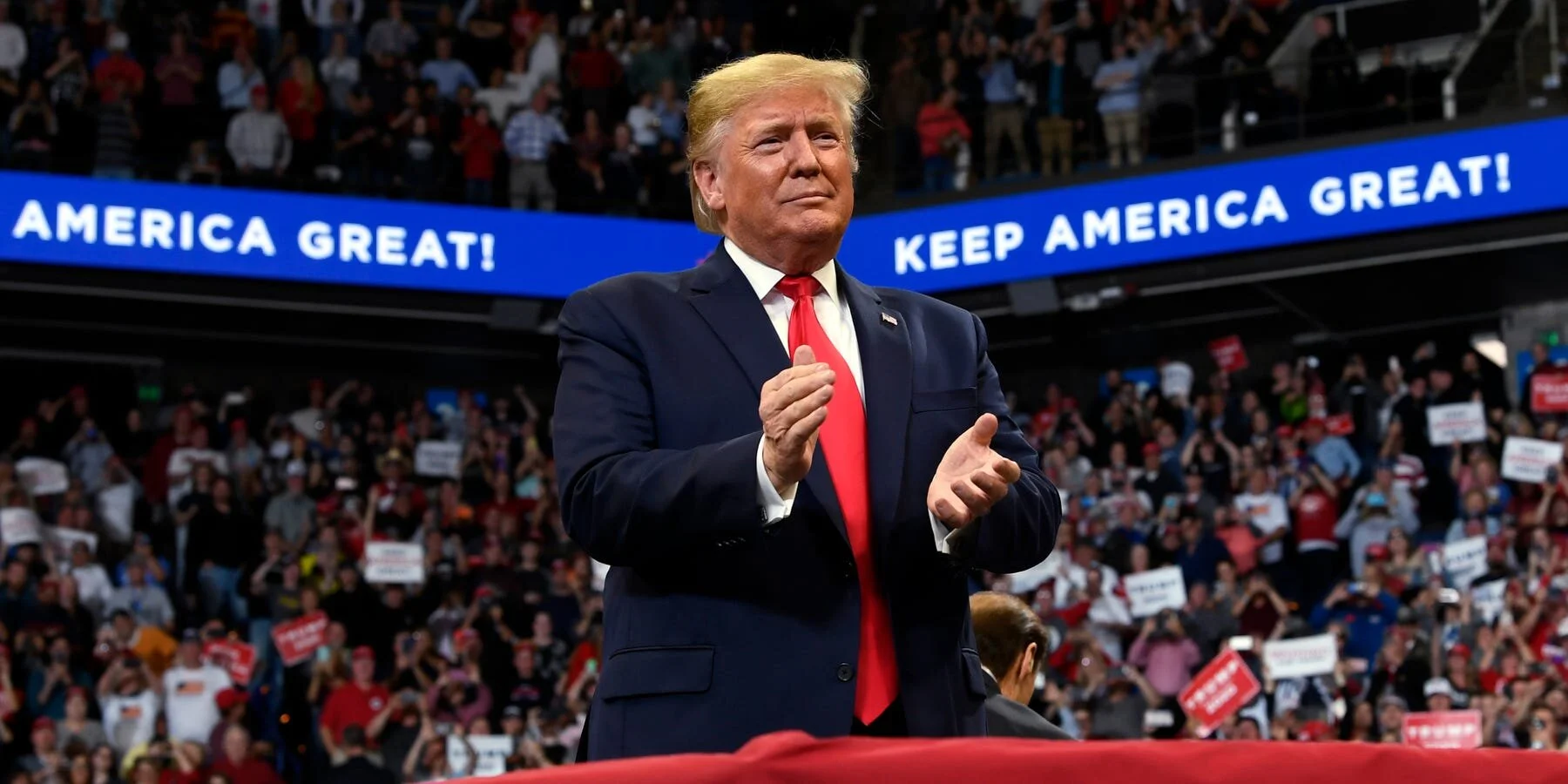Why this Election Season Poses a Unique Threat to American Democracy
Incumbent President Donald Trump has levied many threats over the last weeks that threaten the bedrock of American democracy. Whether institutions will persist and function past November 3 is a question which still hands in the balance. Source.
In the past few weeks, Supreme Court Justice Ruth Bader Ginsburg passed away, Donald Trump announced Amy Coney Barrett as his nominee to replace the vacancy on the court with general support from the Republican party, President Trump has refused to peacefully transfer power if he loses the election, and he and Vice President Mike Pence have continued to strongly oppose mail-in ballots. While these events seem fairly unrelated, they could all come together to make an interesting election day in November.
Due to the Coronavirus pandemic, many people are unable or afraid to vote in person. This has resulted in many people choosing to vote by mail. Some states have even restricted in- person voting for all of its citizens. The Trump administration has repeatedly claimed that mail in voting leads to a lot more fraudulence than in person voting does. Trump has also implied that some ballots were thrown away simply because they had his name on them. Though all of these claims are widely unfounded by researchers, they have continued to be a point of contention throughout the election. It has been used to plant recurring seeds of doubt in the minds of voters. President Trump has claimed that he will not transfer power peacefully if he loses the election. He has cited his distrust for mail in voting as a reason to contest the results. During his debate against democratic nominee, Joe Biden, Trump made it clear that the election would be decided in the Supreme Court because of the fraudulence that supposedly occurs when mail-in voting.
In September of this year, a vacancy on the Supreme Court opened when late Justice Ruth Bader Ginsburg died. In the days following her death, President Trump and Vice President Pence both said they intended to have all nine justices on the court in case they would be needed in the upcoming election. Trump then quickly nominated Judge Amy Coney Barrett to the court. Democrats strongly oppose President Trump’s nomination because it comes so close to the election. However, many Republicans in the senate approve of it. The Supreme Court has been used to decide a Presidential election only once in American history during the 2000 election between George W. Bush and Al Gore. Many, including some justices on the court at the time of the decision, have referred to this case as an anomaly. However, it still provides a precedent for the courts to take the case of a contested election. This means that, while experts doubt Trump will follow through with his propositions, the election could be contested and decided by the Supreme Court. If Barrett is confirmed by the senate, the court will have a 6-3 conservative majority, composed of three justices appointed by Donald Trump himself.
It is not certain that Trump will contest the election to the highest court, or that he will lose the popular vote at all. However, the rhetoric used in his speeches and debates point to an election that will not be decided by the people. The 2020 election could be one in which baseless accusations of fraudulent voting result in the sitting president refusing to adhere to the outcome of the votes. This refusal could then move to the Supreme Court, a third of whom was appointed by the sitting President. They would decide on an election which the American people have already reached a verdict on. No matter how likely this outcome is, the risk it poses is a great threat to American democracy.

